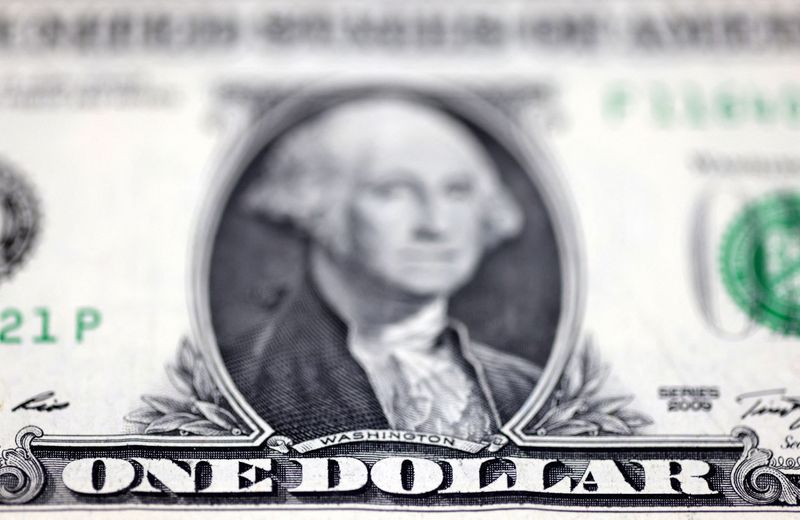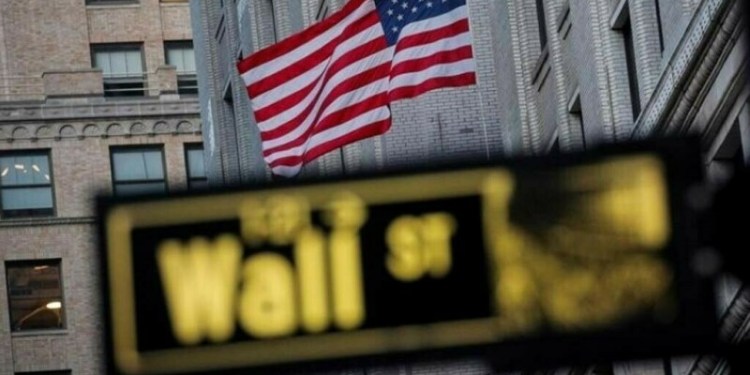
© Reuters. FILE PHOTO: U.S. Dollar banknote is seen in this illustration taken July 17, 2022. REUTERS/Dado Ruvic/Illustration/File Photo
CMWAY
+3.56%
Add to/Remove from Watchlist
Add to Watchlist
Add Position
Position added successfully to:
Please name your holdings portfolio
Type:
BUY
SELL
Date:
Amount:
Price
Point Value:
Leverage:
1:1
1:10
1:25
1:50
1:100
1:200
1:400
1:500
1:1000
Commission:
Create New Watchlist
Create
Create a new holdings portfolio
Add
Create
+ Add another position
Close
DXY
-0.27%
Add to/Remove from Watchlist
Add to Watchlist
Add Position
Position added successfully to:
Please name your holdings portfolio
Type:
BUY
SELL
Date:
Amount:
Price
Point Value:
Leverage:
1:1
1:10
1:25
1:50
1:100
1:200
1:400
1:500
1:1000
Commission:
Create New Watchlist
Create
Create a new holdings portfolio
Add
Create
+ Add another position
Close
BTC/USD
+2.42%
Add to/Remove from Watchlist
Add to Watchlist
Add Position
Position added successfully to:
Please name your holdings portfolio
Type:
BUY
SELL
Date:
Amount:
Price
Point Value:
Leverage:
1:1
1:10
1:25
1:50
1:100
1:200
1:400
1:500
1:1000
Commission:
Create New Watchlist
Create
Create a new holdings portfolio
Add
Create
+ Add another position
Close
By Karen Brettell
NEW YORK (Reuters) – The dollar gained against the Japanese yen on Friday after Bank of Japan (BOJ) governor Kazuo Ueda said it was too soon to declare victory on inflation, but dipped against the euro after weaker than expected U.S. economic data.
In cryptocurrencies, bitcoin held just below a more than two-year high reached on Wednesday.
Ueda said it was too early to conclude that inflation was close to sustainably meeting the central bank’s 2% inflation target and stressed the need to scrutinize more data on the wage outlook.
That sent the yen lower, reversing a move from Thursday when BOJ board member Hajime Takata said that the central bank must consider overhauling its ultra-loose monetary policy, including an exit from negative interest rates and bond yield control.
Inflation expectations and the path of BOJ policy will likely depend on negotiations between large firms and unions over wage increases.
“If we’re right in expecting wage negotiations are going to lead to more signals that inflation is becoming a little bit more persistent in Japan, then we expect BOJ to exit negative interest rate policy,” said Bipan Rai, North American head of FX strategy at CIBC Capital in Toronto.
However, “I feel like it is priced in already”, Rai added. “Beyond there we’re really looking at what sort of tweaking they do to the yield curve control program.”
Big firms will settle negotiations on next year’s pay with unions on March 13, ahead of the BOJ policy meeting on March 18-19. Economists project wage hikes of about 3.9% on average, exceeding a 3.58% pay rise deal struck in 2023 that was the highest in three decades.
The dollar was last up 0.15% at 150.20 yen.
The dollar index fell 0.15% to 103.96.
The index reversed earlier gains after the University of Michigan’s sentiment survey was weaker than forecast.
‘TOO SOON’ TO PREDICT RATE CUT TIMING
U.S. manufacturing also slumped further in February, with a measure of factory employment dropping to a seven-month low amid declining new orders.
The U.S. services sector growth picked up in January as new orders increased and employment rebounded, but suppliers appeared to fall behind, resulting in a measure of input prices rising to an 11-month high.
The greenback has been largely rangebound as investors evaluate data for fresh clues on when the Federal Reserve is likely to begin cutting interest rates.
Price increase pressures still exist in the U.S. economy and it is too soon to predict when the Fed will be able to begin to cut its benchmark interest rate, Richmond Fed President Thomas Barkin said on Friday.
U.S. inflation data for January on Thursday was in line with economists’ expectations. The next major U.S. economic release will be February’s employment report due next Friday.
The euro gained 0.28% to $1.0833.
Data on Friday showed that euro zone inflation dipped last month but underlying price growth remained stubbornly high, adding to the case for the European Central Bank to hold interest rates at record highs a bit longer before starting to ease policy towards mid-year.
The euro zone’s currency has traded within a range of $1.07 to $1.11 since November as investors struggle to work out when the ECB and the Fed will start cutting rates.
Sterling rose 0.09% to $1.2636.
Bank of England (BoE) chief economist Huw Pill said on Friday he thought the time for a first interest rate cut by the central bank since the coronavirus pandemic remained “some way off.”
Bitcoin was last up 0.7% at $61,840, after reaching $63,933 on Wednesday, which was the highest since Nov. 2021.
Source: Investing.com





























